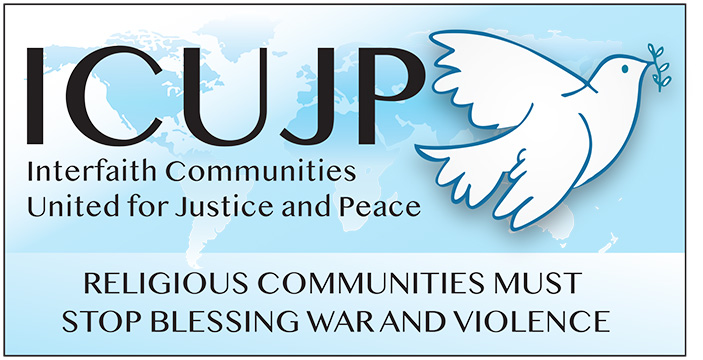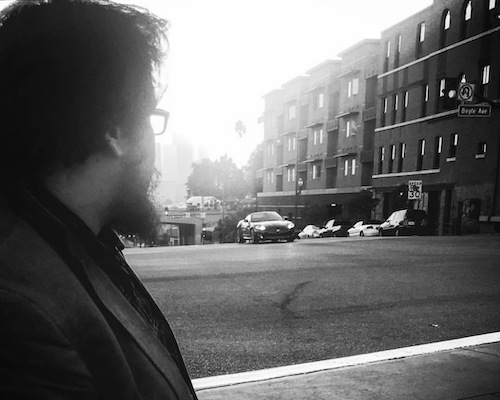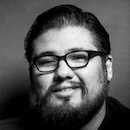During
the memorial for John Lewis, Rev. James Lawson reminded us that one of the
great legacies of the Nonviolent Movement of the 60s was affordable housing:
“The media makes a mistake when John
[Lewis] is seen only in relationship to the voting rights bill of '65. However
important that is, you must remember that in the ’60's, Lyndon Johnson and
the Congress of the United States passed the most advanced legislation on
behalf of we the people of the United States that was ever passed—Head Start. Billions
of dollars for housing. We would not be in the struggle we are today in
housing if President Reagan hadn’t cut that billions of dollars for housing,
where local churches and local nonprofits could build affordable housing in
their own communities being sustained and financed by loans from the federal
government.”
I
invite Quakers to join in efforts to end homelessness and poverty by advocating
for affordable/supportive housing. Here is what our workshop on “Loving Your
Neighborhood” is about.
Goals:
·
To provide
a brief overview of Quaker involvement with housing justice from the time of George Fox to the founding of Self-Help
Enterprises and Making Housing and Community Happen.
·
To
help Quakers understand why housing justice is crucial to ending homelessness
and poverty and to see the relationship between housing and racial justice.
·
To offer
practical tools for becoming effective advocates for housing justice using a
faith-based approach.
·
To
form on an ongoing team/committee willing to do advocacy around housing
justice.
Check in: why are you concerned with affordable
housing and ending homelessness?
Quakers and housing
justice:
Using Church
Land to House the Poor. Early Quakers wanted to radically
transform society and end poverty. To do so, Fox and early Friends met with
political leaders (like Oliver Crowell and King Charles) and also issued public
statements and petitions. Some addressed specific concerns, like the 59
Particulars; others were more general, like the Peace Testimony. All had a
political purpose, that is, they were intended to influence policy.
In his introduction to
Fox’s 59 Particulars, Larry Ingle explains that this petition didn’t make much
of an impact on Parliament, which was on the verge of dissolving at this time.
Fox went into a deep depression and the petition was lost to history, until it
was recently rediscovered and reprinted by the Quaker Universalist Fellowship.
Quakers. In the 18th and 19th century tended to downplay
the radical politics of early Friends, just as they tried to ignore the
miraculous cures that Fox reportedly performed. Ingle writes of this document:
“Reading Fox's list of
particulars, one can readily understand why Quakers were regarded as dangerous
radicals by those committed to establishing order and keeping the lower classes
in check. At least in 1659, when there seemed a real chance for fundamental change,
Fox was willing to free the lower orders so the promise of the revolution might
be achieved. The pamphlet thus exemplified the farthest reach of the radical
Quaker tide, propelled by Fox himself.”
TO THE PARLIAMENT OF THE COMMON-WEALTH OF England. Fifty
nine Particulars laid down for the Regulating things, and the taking
away of Oppressing Laws, and Oppressors, and to ease the Oppressed. By George Fox LONDON, 1659.
29. Let all
those Abbie-lands, Glebe-lands [the land belonging to a parish church, or an
ecclessiastical benefice], that are given to the Priests, be given to the poor
of the Nation, and let all the great houses, Abbies, Steeple-houses, and
White-Hall be for Alms-houses (or some other use than what they are) for all
the blind and lame to be there, and not to go begging up and down the streets.
32. Let all those Fines that
belong to Lords of Mannors, be given to the poor people, for Lords have enough….
33. Let all the poor people,
blinde and lame, and creeples be provided for in the Nation, that there may not
be a beggar in England nor England's Dominions…
Ironically,
Fox’s idea that church lands should be used to provide housing for low-income people
no longer seems radical. In her book Making Housing Happen: Faith-Based
Affordable Housing Model (2006) Jill Shook describes how churches have been
using their land and resources to build affordable housing for many decades. A major problem for churches wanting to build
housing has been that church land is usually not zoned residential. To address
this problem, the California state legislature recently introduced SB 899 that
would rezone church land throughout the state so that they can build affordable/supportive
housing on their excess land. This is a bill is something that modern Quakers
should be supporting!
Quakers have been involved
with housing justice since the 1930s.
Founded during WWW I, the American Friends Service Committee became involved
with self-help housing and job
skills for out-of-work coal miners in Appalachia in the 1930s. Quakers were
also involved in rehab projects in Philadelphia in the 1940s and 50s.
In the 1960s Quakers started Self-Help Enterprises
in the Central Valley of California to help farm workers build their own home. In
Making Housing Happen, Edward Moncrieff, founder of CHISPA, describes
how Millard Fuller, founder of Habitat, went to the Central Valley in the
mid-1980s to learn about what was being done to help farm workers build their
own homes. There he learned about
Self-Help Enterprises, which was started in 1965, a decade before Habitat was
formed. See my blog to read this intro: https://laquaker.blogspot.com/2020/08/how-quakers-help-introduce-self-help.html
Self-Help Enterprises was started by Bard
McAllister, a staff member of the AFSC Farm Labor Project in Visalia, in the
early 1960s. In 1965, Bill Lovett was recruited to take part in this project
and worked on it for the next 23 years.
Self-Help Enterprises became a nationally
recognized community development organization whose mission is to work together
with low-income families to build and sustain healthy homes and communities.
Since 1965, Self-Help Enterprises’ efforts have touched the lives of over
55,000 families.
During the 1980s and 1990s,
housing costs and eviction rates soared across the country because of the
Savings and Loans crisis. Many grassroots nonprofits and advocacy groups
were formed at this time to address the growing need for affordable housing
throughout the US. In Pasadena, Affordable Housing Action (AHA), an
advocacy group with Quaker roots, was birthed during this period. This was the
forerunner of the Greater Pasadena Affordable Housing Group (GPAHG), which recently
became a nonprofit under the name Making Housing and Community Happen (MHCH).
AHA had their first meeting at
the American Friends Service Committee (AFSC) office which was then located on
North Fair Oaks Avenue. AHA met monthly to address the need for affordable
housing in Pasadena. AHA was committed to the production and preservation of
quality, appropriate, affordable housing with priority on the most vulnerable
populations of low to no-income residents, and the dispersal of this housing
throughout the city of Pasadena.
·
Affordable/permanent
supportive housing never gets built without advocacy. No law requires affordable
housing to be built.
·
Advocates
are need to secure funding for worthwhile affordable housing projects. In order
to get Self-Help Enterprise funded, advocates had to convince the federal government
to allow farm workers access to loan funds that were available to farm owners.
·
Affordable
housing needs government subsidies, which requires public pressure and
advocacy.
·
People
who don’t want affordable housing near their homes often put pressure on elected
officials to enact laws that make it difficult or impossible to build affordable
housing. These laws need to be opposed by advocates.
·
As Rev.
James Lawson pointed out, advocacy is what made possible programs that built
hundreds of thousands of units of affordable housing and reduced poverty and
homelessness. We can trace the rise of poverty and homeliness in our nation to
Reagan cutting funds to these programs.
How to engage in local
faith-based advocacy:
·
Form
a team/committee of people concerned about ending homelessness and poverty
through affordable/supportive housing.
·
Learn
about local needs and policies that could address these needs.
·
Build
relationships with homeless service providers, progressive groups (such as
Tenants Union), and churches.
·
Meet
with elected officials around specific local issues.
·
Organize
public events to raise awareness of problems and solutions.
Some important housing
justice policies:
·
Inclusionary
zoning
·
Allowing
religious institutions to build affordable/supportive housing on their property
·
Rent
stabilization (homelessness prevention)
·
See
list of other policies that can make a difference
Why our faith-based approach works
·
Connecting
with “that of God” in elected officials and in those who are opposed or on the
fence.
·
Building
the “beloved community.” Work on building relationships, not simply winning approval
of policies.
·
Biblical
basis for housing justice work. Jubilee economics.
·
Spiritual
basis for housing justice. Wanting for others what you yourself have. The
antithesis of NIMYism.
Resources:
Organizations
involved in housing justice at the state and local level.
LA
County:
Everyone
In
LA Voice
State
Level
National




 Courtesy of Matt Sedillo
Courtesy of Matt Sedillo Matt has appeared on CSPAN and in the Los Angeles Times, and has spoken at Casa de las Americas and the University of Cambridge. He is the current literary director of the dA Center for the Arts in Pomona, CA.
Matt has appeared on CSPAN and in the Los Angeles Times, and has spoken at Casa de las Americas and the University of Cambridge. He is the current literary director of the dA Center for the Arts in Pomona, CA.